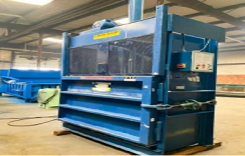If you are fortunate enough to have your own spray booth, the choices you make in terms of filters can have a significant impact on efficiency, maintenance costs, and the quality of the end product.

Image Credit
There is a range of different spray booth filters available.
Air makeup filters
These are often your first line of filtration defense. These filters trap large particles before the air even reaches the air makeup unit. Air makeup filters are available in many varieties, including pad, panel, pocket and bag, and cleanable aluminum.
It is important that the air makeup filters do not come into contact with either the burner or coil.
Input filters
Input filters make sure that the air that goes into the booth is clean and particle-free. A particle of just 0.01mm could potentially ruin your paint job.
Extract filters
As you would expect from the name, these filters clean the air leaving the booth. These are vital because the chemicals used in paint spraying can be hazardous. On top of this, they also protect fans, ducting, and dampers from the build-up of over-spray. This increases the overall lifespan of the spray booth and reduces the chances of malfunctions.

Image Credit
A dual exhaust filter method is sometimes used. The primary extract filter removes the larger paint particles, with the secondary extract filter dealing with the smaller ones.
Your choice of spray booth filter will impact on the quality of finish that you are able to achieve.
Ceiling filters
Ceiling filters provide the filtering of the air in the booth. It contains a so-called “dust binder”, enabling it to hold any granular substance (including sanding dust).
Paint mist filter
This filter is made of inflammable fiberglass material and extracts paint mist in your booth.
Andrea filter
This is a paper zigzag filter with powerful filtering capability. It has circular openings that enable separation of paint mist in spray walls.
Filter maintenance
A thorough filter maintenance program will prolong the lifespan of both your filters and the spray booth. It isn’t always easy to know when a filter needs replacing; one way is to use a manometer or Magnehelic pressure gauge. Alternatively, you can ask the company who you got your spray booth to assist you with creating a schedule.





